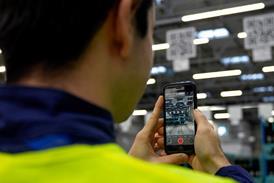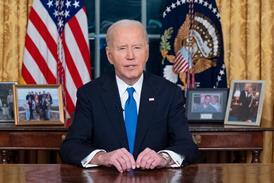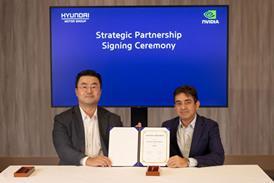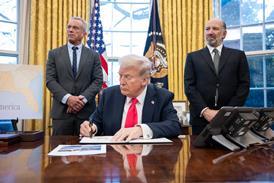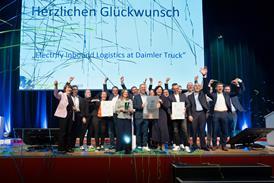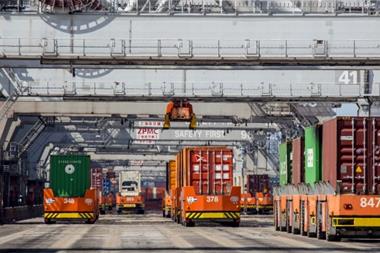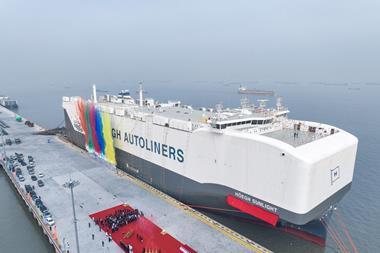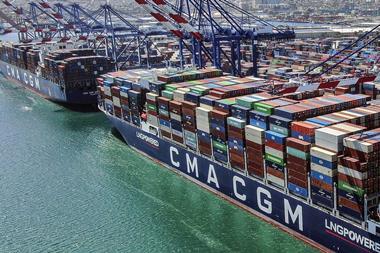 The Argentinian port of Rosario has taken delivery of its first ever consignment of finished vehicles. The initial consignment consisted of 2,200 GM vehicles including Chevrolet Captiva, Cruze and Spark models in what was essentially a pilot operation to see whether the terminal would be able to cope with this type of traffic.
The Argentinian port of Rosario has taken delivery of its first ever consignment of finished vehicles. The initial consignment consisted of 2,200 GM vehicles including Chevrolet Captiva, Cruze and Spark models in what was essentially a pilot operation to see whether the terminal would be able to cope with this type of traffic.
That was put to the test, given the operation was delayed by a day following difficulties in providing the necessary tug support by Terminal Puerto Rosario (TPR), which blamed the initial failure on bureaucratic trade unions. The situation almost resulted in the vessel being diverted to Argentina's main finished vehicles handling facility at the port of Zárate.
However, a spokesperson for GM was optimistic about future activity. "Following this operation, the port will surely go ahead with the investment necessary to have the infrastructure that this type of operation requires; infrastructure that wasn't available in the pilot," he said.
The spokesperson went on to explain that finding a logistics alternative to the port of Zárate, where things are currently "complicated", was necessary. He noted that the terminal is operating at full capacity, and customs delays are driving up costs because vehicles are having to wait longer in the compound. Earlier this year an import licence problem at Zárate caused congestion at the port, one of a number of issues that has affected vehicle processing at the port, which is responsible for 90% of finished vehicle imports and exports.
In the 1990s, GM decided to set up operations in the Rosario metropolitan area specifically because there was a multi-purpose port capable of undertaking import and export handling operations in its own backyard. However, given the lack of institutional solvency, investment and questions regarding operational capacity, any potential use of TPR had been ruled out up until now. Nevertheless, in recent times, new ownership, including the Chilean company Ultramar, has taken control of TPR, leading to a rethink in how the terminal is operated.
The governor of Santa Fe province, Antonio Bonfatti, acted as a facilitator in promoting the agreement with the carmaker.
Rosario could offer lower logistics costs to GM, but it has to make major investments in creating the necessary holding compound for finished vehicles, and the associated services these require.
- More navigation items
- Home
- Focus
- Digitalisation
- Nearshoring
- Lean Logistics
- EV & Battery
- Sustainability
- Events
- Automotive Logistics & Supply Chain Europe 2025
- Finished Vehicle Logistics North America
- Automotive Logistics and Supply Chain Digital Strategies North America
- Automotive Logistics & Supply Chain Global
- Automotive Logistics & Supply Chain ASEAN
- Automotive Logistics & Supply Chain Mexico 2024
- Automotive Logistics & Supply Chain Digital Strategies Europe
- Automotive Logistics Livestreams
- Watch past events on-demand
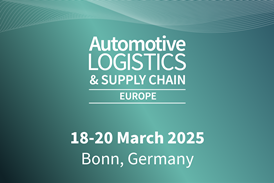 Automotive Logistics & Supply Chain Europe 2025
Automotive Logistics & Supply Chain Europe 2025 Finished Vehicle Logistics North America
Finished Vehicle Logistics North America Automotive Logistics & Supply Chain Digital Strategies North America 2025
Automotive Logistics & Supply Chain Digital Strategies North America 2025
- Companies
- Regions
- Partner Content
- Video and Audio
- Events
- Automotive Logistics and Supply Chain Europe Insights
- Automotive Logistics and Supply Chain Digital Strategies Europe Insights
- Automotive Logistics and Supply Chain Mexico Insights
- Automotive Logistics and Supply Chain Global Insights
- Automotive Logistics and Supply Chain Digital Strategies North America 2024 Insights
- Finished Vehicle Logistics North America 2024 Insights
- Finished Vehicle Logistics North America 2023 Insights
- Automotive Logistics and Supply Chain Europe 2023 Insights
- Automotive Logistics and Supply Chain Mexico 2022 Insights
- Automotive Logistics and Supply Chain Global 2022 On Demand
- Finished Vehicle Logistics North America 2022 On Demand
- Automotive Logistics and Supply Chain Europe 2022 On Demand
- Events
 Watch: DB Schenker on managing automotive supply chain disruptions
Watch: DB Schenker on managing automotive supply chain disruptions- Register now: Data: Silos, Security & Sovereignty livestream
- News and Features
- Insight
- Magazine
- Media Pack
- Register
- Sign In




